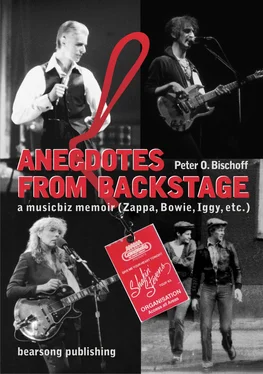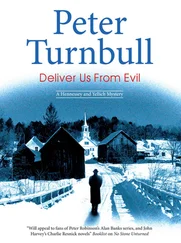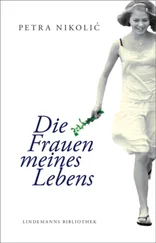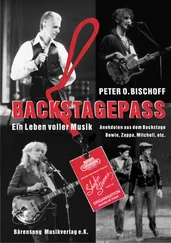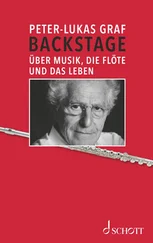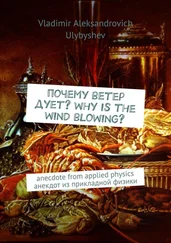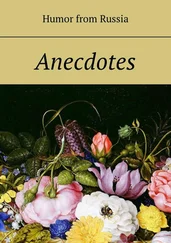When I didn’t have a regular band, I went along to session after session or met up with like-minded souls at various youth clubs and played with and for whoever happened to be there.
On one occasion, a kid walked up to our guitarist and asked, “So you’re the best guitarist in Berlin, you reckon?” Cool and calm, Bernd Gärtig replied, “Could be.”
Bernd went on to enjoy a successful career in Hamburg with Lake. I thought he was Berlin Friedenau’s very own Carlos Santana. He could play like a man possessed but my mother would always say “it’s that friendly Bernd” when he phoned us at home.
Bernd was a kind of Gyro Gearloose. He loved fiddling about and finding new ways of improving his guitars - such as adapting the frets so he could bend strings further. He was also one of the first to use a wireless transmitter on his guitar.
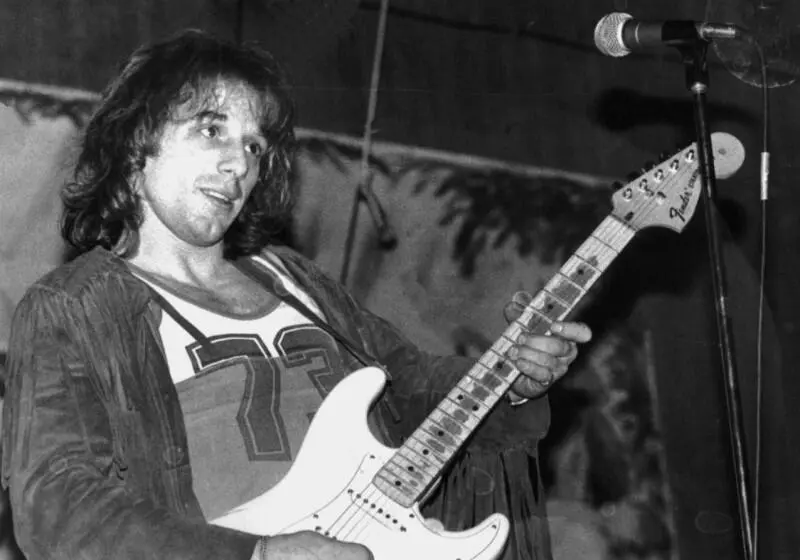
Bernd Gärtig
Then he invented the elastic guitar strap. I’ll never forget watching Mother’s Finest on WDR’s Rockpalast and suddenly realising the guitarist was using one of Bernd’s elastic straps. With his long blonde hair and the way he moved, he actually looked very similar to Bernd. Bernhard Kurzke from No.1 (music store) managed to get hold of the idea and soon had it under patent.
Bernd later lived in a garden house in Blankenese near Hamburg in the grounds of the house occupied by Udo Lindenberg and Gottfried Böttger and next door to property owned by renowned publisher Axel Springer.
I once spent the night there and, when the alarm clock rang the next morning, the curtains went up automatically, the coffee machine sprang to life and music started pouring from the radio. Bernd was a born tinkerer. His house is a bit difficult to see at the left, but in front is his special van from Volkswagen.
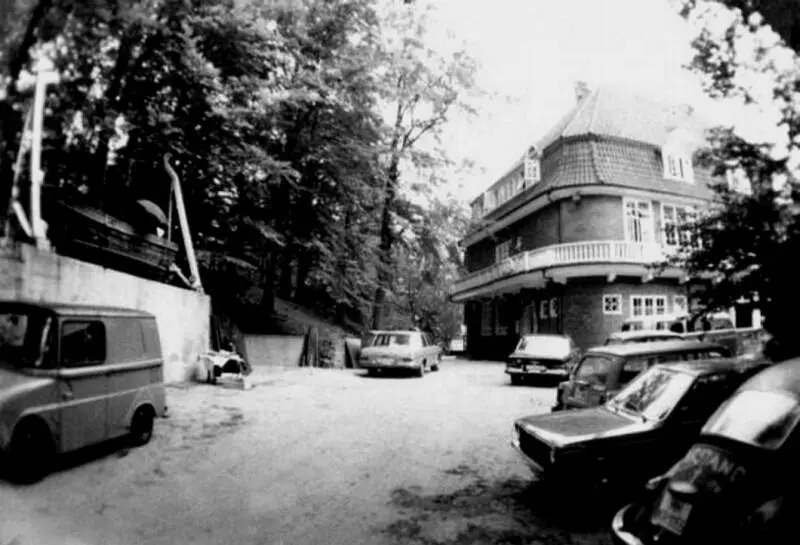
Falkensteiner Ufer - Hamburg
The first rock concert I ever visited in Berlin was “Ton Steine Scherben” in 1970 in a club called Quartier Latin. Singer Rio Reiser belted out his hit “Macht kaputt was euch kaputt macht” (Destroy what’s destroying you).
But it was me who was actually broke. I had to walk home after the concert. As a trainee, I didn’t have the money for a taxi and night buses didn’t exist back then. However, it wasn’t long before I passed my driving test and my parents helped me out with my first car: a 1959 VW Beetle which could barely manage 80 km/h (50 mph). My father restricted the engine so I couldn’t race around the city. Originally, I had wanted to buy a Karmann-Ghia from a workmate, but my Dad was dead against it: “It’s far too fast for you!” Even if I had wanted to, somehow I don’t think a car as simple as the Karmann-Ghia would have turned me into Michael Schumacher.
So I got my mother’s Beetle. Sprayed blue, it didn’t look half bad. And the built-in radio was pretty impressive compared to others I had heard; the speaker positioned directly behind the steering wheel certainly had plenty of oomph. But I’d have to wait for a cassette player.
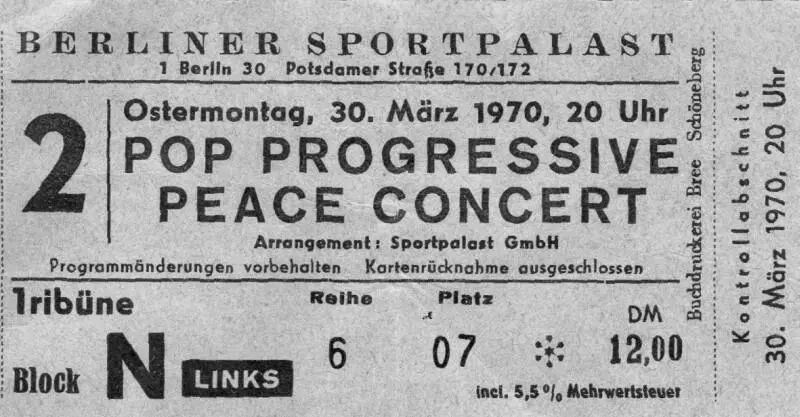
Sportpalast Berlin, 30.3.1970, the Pop Progressive Peace concert: what an event! The line-up included The Spencer Davis Group, Hardin & York, Deep Purple, The Nice, Keef Hartley Band, Alexis Korner, and Wonderland. As the concert drew to a close, all the musicians involved came back on stage for an impromptu session - including the festival promoter and member of Wonderland, Frank Dostal, who I would eventually get to know in my time at Logo as Rosy Rosy’s and the Crackers’ producer.
While Deep Purple were performing, I managed to get right up to the stage (there was never anything like stage security or crush barriers back then) and watched Ritchie Blackmore destroy two Fender guitars by driving them into his amplifier. I was well impressed. What a power!
Ticket prices were far lower at that time; I bought my ticket in advance for 9,80 DM (€5). However, that was still a considerable sum for a trainee like myself bringing home no more than 130 DM a month.
I eventually got to know the members of Wonderland when I moved to Hamburg:
Dicky Tarrach with The Rattles, Kalle Trapp as producer of one of the bands I managed. Claus Robert Kruse played with his jazz group Känguru on numerous occasions at the Fabrik in Hamburg and Achim Reichel joined many of the artists on his label when they appeared at Logo during my time there.
Finally, my dream of playing live with my own band came true.
We turned quite a few heads in late summer 1973 driving through Berlin in an old police bus we had bought at an auction, all long hair and high hopes, jaws dropping whenever we stopped at traffic lights. We were invited to play at a festival in Berlin Neukölln called “Artmeeting 73” which sported a line-up of local bands e.g. Rockcypfel and Tontransport. Before each band, they showed a short introductory film made in the band’s own rehearsal space; ours was probably the best because we practiced on the upper floor of a church in Kreuzberg, in front of a massive organ. Unfortunately, very few people saw us play as we were first on stage - at 3pm - about 50 watched us and provided warm applause. We later discovered someone had made a bootleg tape - immortality of a kind. The name of our band: Hope. (Springs eternal, don’t you think?)
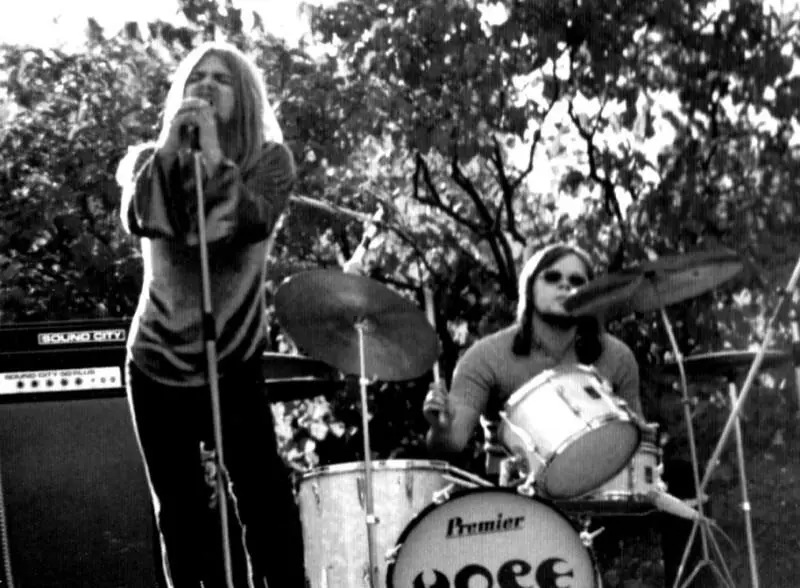
Hope: Klaus Wolf and Peter Bischoff
We were a collection of amateur musicians with little ambition and few illusions about how far we could go on little more than raw enthusiasm. However, our bass player Eddy eventually graced a number of groups including The Twins (we both tried out for their predecessor, Chippendale). His girlfriend Beate Bartel was also a bass player who went on to found Mania D, Einstürzende Neubauten and Liaison Dangereuses.
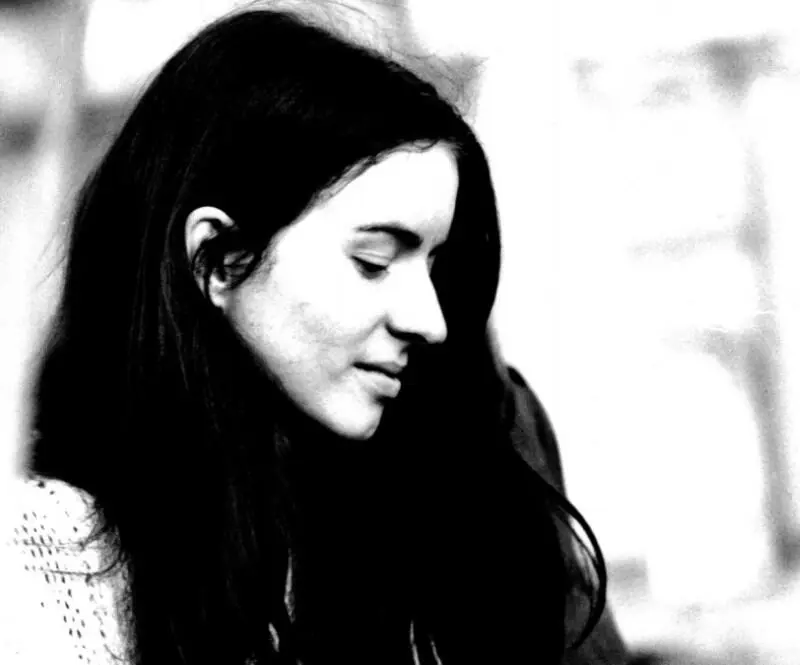
Beate Bartel
We met Alex Conti and Bernd Gärtig through sessions in Neukölln and Kreuzberg (they both moved to Hamburg and played with Neil Landon, Rudolf Rock und die Shocker and Lake.) During one such session, Eddy took off his bass and came across to me on drums. He was clearly a bit shaken and said he simply couldn’t keep up with “two cool guitarists who played like Clapton and Hendrix”.
Inga Rumpf invited Alex to come to Hamburg to join her famous band, Atlantis. While on tour in the US with Lake - supporting Lynyrd Skynyrd - the group Chicago tried to hire him - but he politely declined their offer. A US agency invited Lake to play for a full 365 days in the States, but the band took a little too long to reach a decision so the agency politely withdrew their offer.
Back in Hamburg, Alex found himself short of cash for a taxi after a nght out on the tiles, so he paid the driver by handing over a very expensive Rolex watch instead.
Alex used to share a flat in Pöseldorf with Bernhard Kurzke (founder of No.1 music store). On one occasion, as he was entertaining a young lady, Bernhard urgently needed to use the only phone in the house - which was lying under Alex’ bed. He quietly opened the door a little and started pulling the cord. However, the telephone fell over, the moment was ruined and Alex threw a hail of abuse - and his boots - at the culprit disappearing quickly behind the door.
Читать дальше
